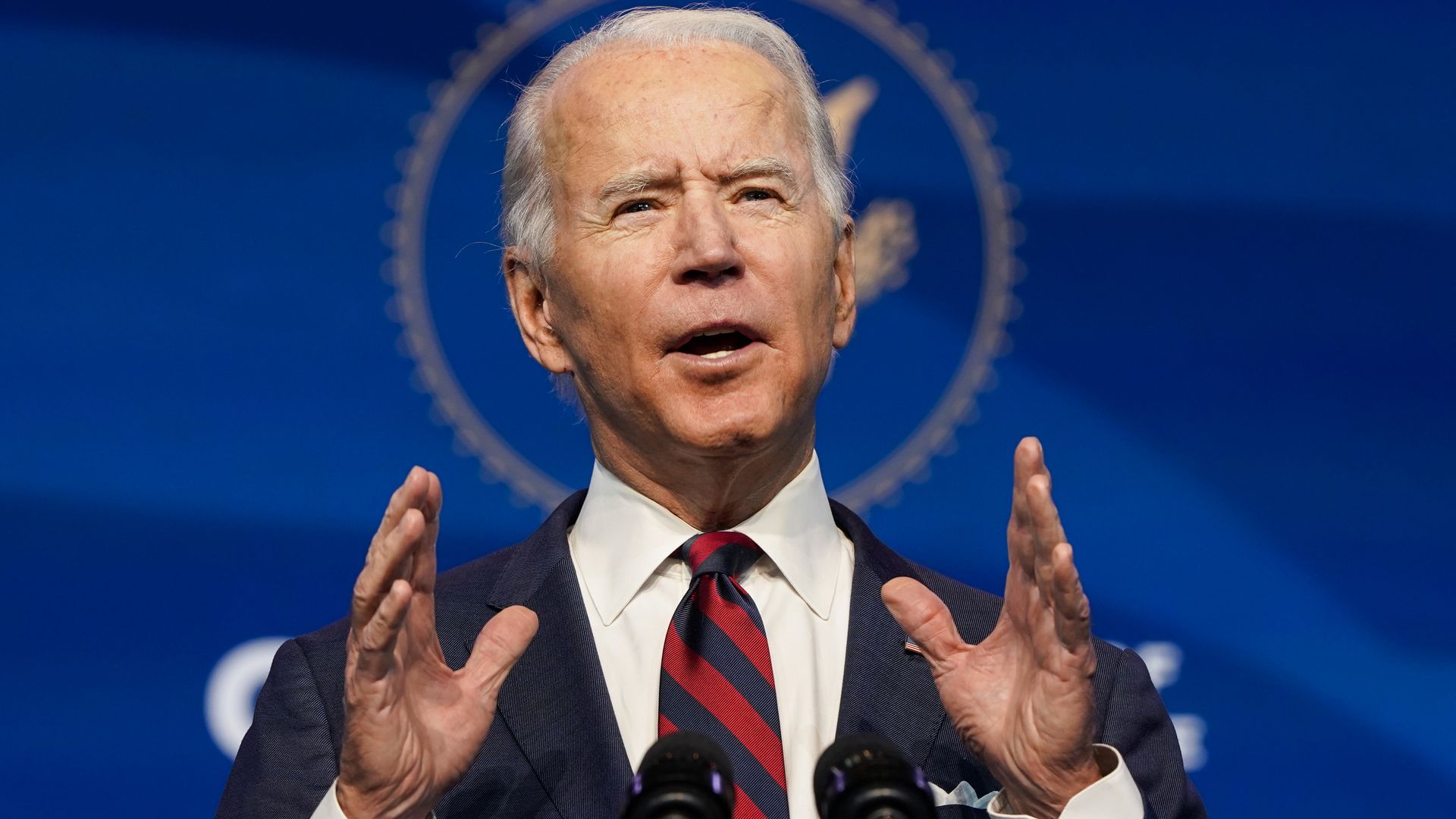On Day One, Biden will move to rejoin Paris Climate Agreement
Add Axios as your preferred source to
see more of our stories on Google.

Photo: Joshua Roberts/Getty Images
President-elect Biden on Wednesday will begin the formal process for the U.S. to rejoin the Paris Climate Agreement, making good on a highly touted campaign promise.
Catch up fast: President Trump first announced his intention to abandon the accord in June 2017, angering countries worldwide. The U.S. became the only country to pull out of the pact on Nov. 4, 2020, the day after the election and the first possible day for the country to withdraw under the agreement's terms.
How it works: The official U.S. return to the agreement under Biden takes effect in 30 days, and sometime later this year the Biden administration will be expected to submit a new official commitment that pledges domestic reductions in heat-trapping emissions.
The big picture: The Paris Climate Agreement, which marked its fifth anniversary last month, aims to drastically slash greenhouse gas emissions in the coming decades to keep Earth's global temperature from rising 2°C, compared to preindustrial levels, by the end of this century.
- While signatory countries are expected to welcome the return of the U.S., Biden will face tricky geopolitics trying to simultaneously regain credibility and urge other nations to step up their commitments.
Flashback: Trump's withdrawal from the Paris agreement was not the first time a Republican president pulled the U.S. out of an international climate accord. Former President George W. Bush in 2001 abandoned the Kyoto Protocol, a deal signed by his Democratic predecessor, Bill Clinton.
- "It's simple for the United States to rejoin, but it's not so simple for the United States to regain its credibility," John Kerry, Biden's special climate envoy, told NPR in December.
Where it stands: U.N. Secretary-General António Guterres told reporters last month, that he looked "forward for a very active U.S. leadership in climate action from now on, as the U.S. leadership is absolutely essential."
- "The United States is the largest economy in the world. It is absolutely essential for our goals to be reached.”
What to watch: Biden has vowed to aggressively tackle climate change, aiming to have a carbon-free electricity grid by 2035 and a net zero-carbon economy by 2050.
- He is also expected to immediately begin reversing Trump’s rollbacks of environmental regulations.
But, but, but: He’s still unlikely to achieve his biggest goals without major new laws passed by Congress, which will be a tall task, even with Democrats in control of both chambers, per Axios' Amy Harder.
- Because of those limitations, he's likely to look for achieving America's commitment to the deal by executive actions and leaning on states and other stakeholders that have been reducing emissions over the last four years.
What we're watching: Biden has pledged to lead "an effort to get every major country to ramp up the ambition of their domestic climate targets," as well as fully integrate climate change into U.S. foreign policy and national security strategies.
- This includes bringing together "the leaders of major economies for a climate summit within my first 100 days in office," Biden said last month.
Go deeper... Biden's Day 1 challenges: Climate change
